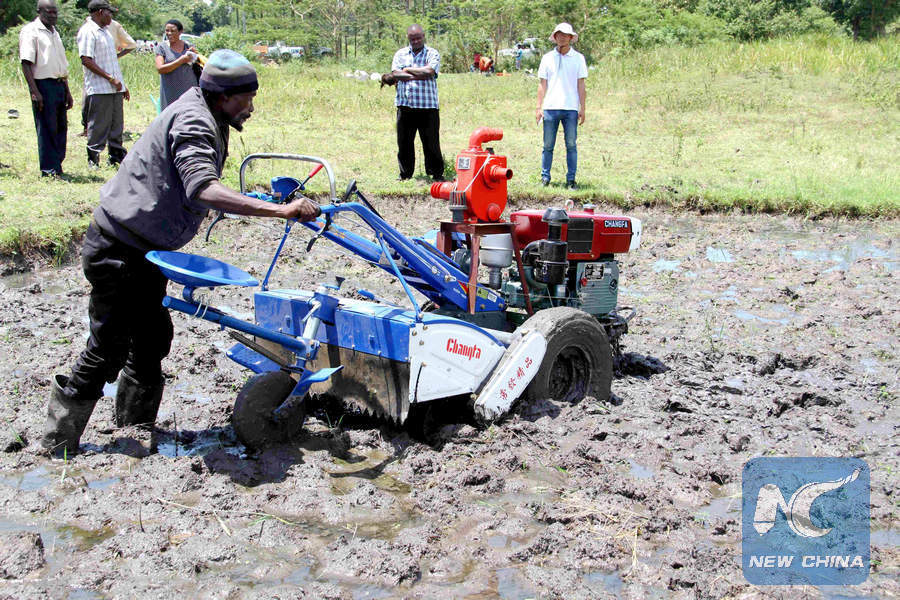
Rice farmers in Budaka district, eastern Uganda learn how to use agriculture machinery to prepare their gardens for planting, Oct. 25, 2016. (Xinhua/Ronald Ssekandi)
KAMPALA, March 1 (Xinhua) -- The Ugandan government has warned that its population was slipping into the food insecure phase due to the prolonged dry spell that has led to crop failure.
In a new report launched here on Tuesday dubbed National Food Security Assessment, an estimated 69 percent of the country's population is minimally food insecure.
"These households still have food stocks from the second harvest that are expected to last for the next two to three months," the report launched by Prime Minister Ruhakana Rugunda said in part.
The report also showed that 26 percent of the total population is facing stressed food insecurity meaning that the population just has enough food and is unable to afford some essential food expenditures.
It also showed that 10.9 million people in the country are experiencing acute food insecurity situation, of which 1.6 million are in a crisis situation.
"Food security across the country is deteriorating. The current food insecurity situation, when compared with the last two reports of November 2015 and July 2016 shows an increase in the percentage of the country's population that is in Phase 2 (stress level of food security)," the report showed.
It said the increasing demand for food in external markets and the influx of South Sudan refugees into Uganda has worsened the situation where by the poor households cannot afford food from the market.
Rugunda said the government has earmarked 25 billion shillings (7.1 million U.S. dollars) to purchase relief food for the food stressed population.
"It (government) is in the process of procuring 6,000 metric tonnes of maize floor and 1,400 metric tonnes of beans. Deliveries of relief food to populations severely affected in Karamoja, Teso, Bukedi and the cattle corridor is on-going," he said at the function attended by donor agencies and diplomats.
Vincent Ssempijja, minister for agriculture said government has procured seeds to distribute to the population now that the rains have started. He warned the population to use the food they have sparingly.
"Government is working with development partners to ensure that we are not going to reach emergency and famine," he said.
According to the World Bank, it will give Uganda 14 billion shillings (4 million dollars) under the cash for work program in the semi-arid region of Karamoja to enable the population to use the money they have earned to purchase food.
"More than 170,000 Ugandans can benefit and another 130,000 Ugandans are already supported through the ongoing initiative," Christina Malmberg Calvo, the World Bank Country Manager said.
She said the bank will fund other activities aimed at boosting agriculture production.
Hilary Onek, minister of relief disaster preparedness and refugees, said the government is now going to concentrate on sustainable measures to avoid a repeat of such food crises.
He highlight the measures as increased use of irrigation as opposed to depending on rain fed agriculture. Government will improve on post-harvest handling noting that farmers lose up to 40 percent of their harvest due to poor handling.

